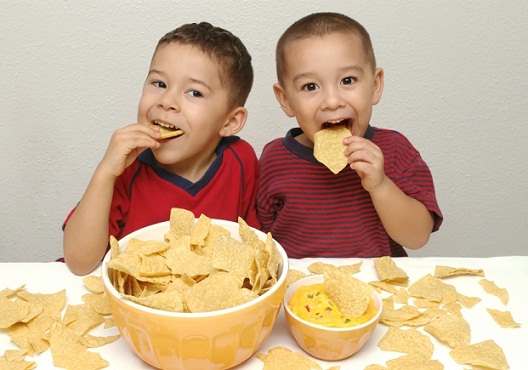Fast Food and Soda Make Kids Fat, But Happy

Although fast food and soft drinks increase chances of children becoming obese, children who consume less of these known causes of obesity are more likely to be unhappy, according to results of a study conducted by researchers at National Taiwan University and the University of Arkansas.
The researchers note that although many studies have addressed the epidemic of childhood obesity, very little study of children’s emotional states has been conducted. Intuitively, we might assume that children who are obese or on their way to obesity would be less happy than children at healthy weights. Using data from a national health study in Taiwan, the researchers correlated consumption of fast food and soft drinks with happiness and found that the children who consumed fast foods and soft drinks most often were significantly less likely to experience unhappiness on a regular basis.
Other factors, of course, are likely to affect children’s levels of happiness, but even after controlling for variables such as socioeconomic status and presence of long-term care patients in the home, the researchers still found that consumption of junk food appeared to make children less likely to be unhappy.
Since the research also adds to the growing body of evidence that these poor food choices contribute to childhood obesity, the researchers certainly aren’t recommending that we start sending kids to fast food restaurants to keep them happy.
The study does conclude, however, that as policy-makers in public health try to figure out how to reduce fast food consumption among children, they should think about how to offset the changes in subjective mood that might result from a decrease in consumption. Are there healthy foods that also make kids less likely to be unhappy? Can exercise offset either the effects of the fast-food or the effects on mood of reducing fast food? Answers to these questions may play an important role in fighting childhood obesity, a cause taken up by First Lady Michelle Obama.
For individuals trying to limit the fast food consumption of their children, the message might be as simple as recognizing the powerful effect of junk food on mood and trying, in daily life, to find positive activities to enhance mood and replace the artificial mood enhancements of fat, salt, and sugar.